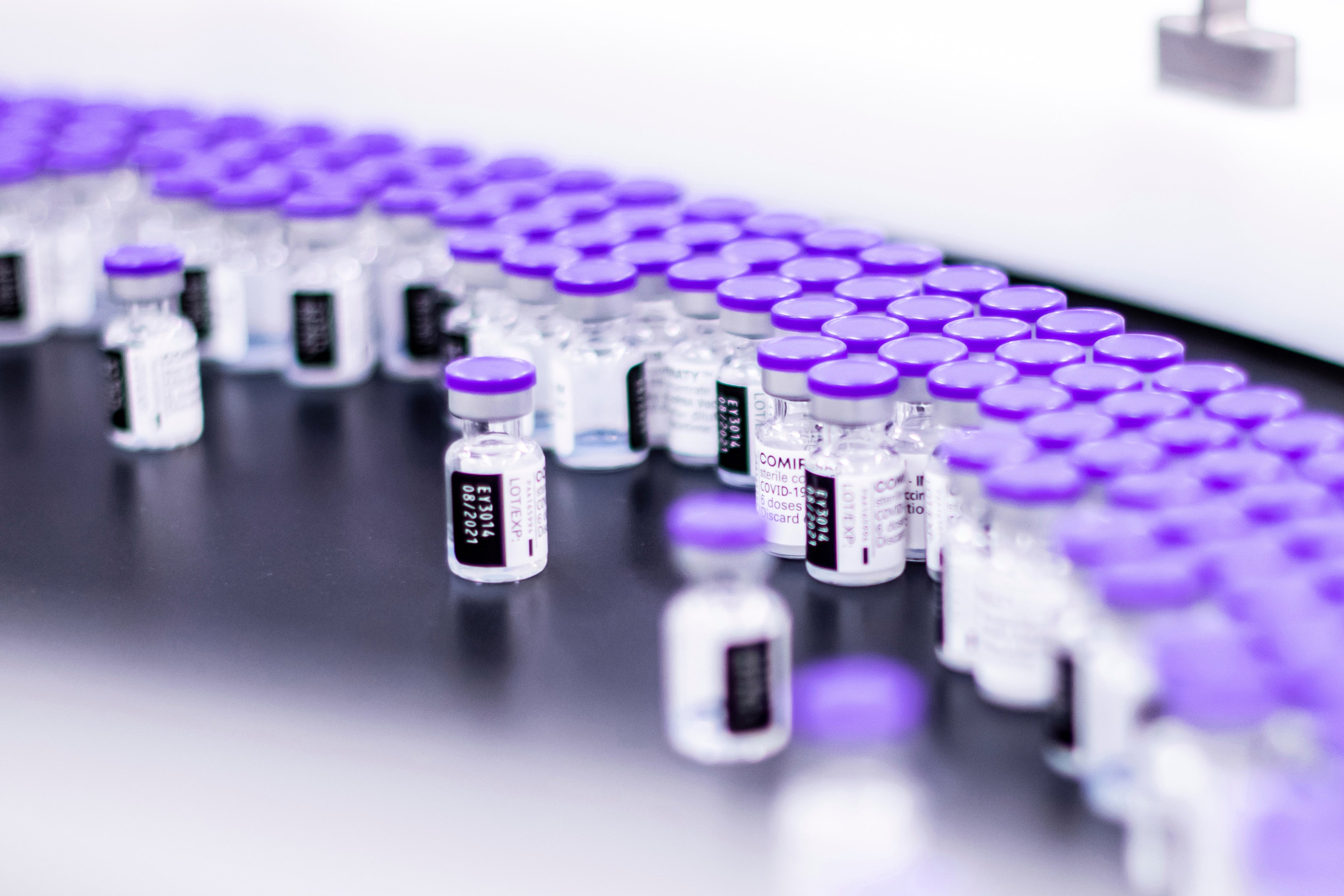Covid -19: Pfizer and BioNTech seek approval for a vaccine booster
“We are prepared for booster doses if and when the science demonstrates that they are needed,” FDA and CDC

Your support helps us to tell the story
From reproductive rights to climate change to Big Tech, The Independent is on the ground when the story is developing. Whether it's investigating the financials of Elon Musk's pro-Trump PAC or producing our latest documentary, 'The A Word', which shines a light on the American women fighting for reproductive rights, we know how important it is to parse out the facts from the messaging.
At such a critical moment in US history, we need reporters on the ground. Your donation allows us to keep sending journalists to speak to both sides of the story.
The Independent is trusted by Americans across the entire political spectrum. And unlike many other quality news outlets, we choose not to lock Americans out of our reporting and analysis with paywalls. We believe quality journalism should be available to everyone, paid for by those who can afford it.
Your support makes all the difference.Within weeks, Pfizer and its partner BioNTech plan to ask US and European regulators to approve a third dose of its coronavirus vaccine, after observing the erosion of the jab's efficacy six months after inoculation amid the spread of the highly contagious Delta variant.
While some scientists have questioned the need for booster shots, Pfizer's chief scientific officer, Mikael Dolsten, said the reported dip in the vaccine's effectiveness in Israel should be debated.
Israel’s health ministry said vaccine effectiveness in preventing both infection and symptomatic disease fell to 64 per cent in June.
"The Pfizer vaccine is highly active against the Delta variant," Dr Dolsten said in an interview. But after six months, he added, "there is a likely risk of reinfection as antibodies, as predicted, wane."
Still, he stressed that data from Israel and Britain demonstrate that the vaccine remains around 95 per cent effective against severe disease even with waning antibody levels,
Dr Dolsten said Pfizer would submit data to the US Food and Drug Administration (FDA) within the next month. The firm did not release the full set of Israeli data on Thursday but said it would be published soon.
In a joint statement, the FDA and Centres for Disease Control and Prevention (CDC) said, "We are prepared for booster doses if and when the science demonstrates it is needed.”
The European Medicines Agency (EMA) said it was too early to determine whether more than two doses would be necessary, saying it was confident for now that the established regimen was sufficient.
Dr Dolsten said early data from Pfizer’s studies showed a booster dose generated antibody levels five or 10 times higher than those seen after two doses.
Dr Eric Topol, a professor of molecular medicine and director of the Scripps Research Translational Institute in La Jolla, California, said basing the decision on waning antibody protection alone ignored the role of important other parts of the immune response.
"You need better studies to be able to assert that. It isn't just neutralising antibodies," he said.
Pfizer plans to launch a placebo-controlled efficacy trial of its booster with 10,000 participants in the autumn.
“The booster would need to be reviewed and recommended by advisers to the CDC even if Pfizer succeeds in getting its booster authorised by the FDA,” said William Schaffner, a vaccine expert at Vanderbilt University Medical Center.
Dr Schaffner said US public health officials were still in the process of encouraging Americans to get their first and second doses of the vaccine.
Additional reporting by Reuters
Join our commenting forum
Join thought-provoking conversations, follow other Independent readers and see their replies
Comments